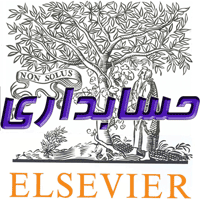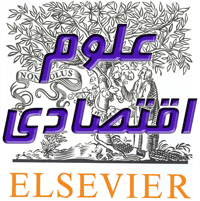دانلود مقاله isi بررسی ارزش و سودمندی درک شده با برچسب حلال (نقش دین و فرهنگ)
دانلود رایگان مقاله الزویر در مورد بررسی ارزش و سودمندی درک شده با برچسب حلال (نقش دین و فرهنگ) (کلیک کنید)
توضیحات :
وبسایت مکاله اقدام به ارائه پروژه ی ساینس دایرکت با فرمت pdf، از انتشارات الزویر برای رشته علوم اقتصادی، و با عنوان بررسی ارزش و سودمندی درک شده با برچسب حلال (نقش دین و فرهنگ)، نموده است.
مشخصات این مقاله :
عنوان مقاله :
Perceived value and perceived usefulness of halal labeling: The role of religion and culture
ترجمه فارسی عنوان :
بررسی ارزش و سودمندی درک شده با برچسب حلال : نقش دین و فرهنگ
سال انتشار : 2014
متعلق به مجله یا ژورنال : مجله پژوهش های کسب و کار-Journal of Business Research
فرمت: PDF
تعداد صفحات: 9
شماره پروژه: 5101
کلمات کلیدی :
Perceived value,Perceived usefulness,Halal label,Cultural orientation,Religiosity,British Muslims
ارزش درک شده، سودمندی ادراک شده، برچسب حلال، گرایش فرهنگی، تعصب مذهبی، مسلمانان بریتانیا
چکیده :
Abstract
This research identifies the impact of the perceived value and perceived usefulness of a halal-labeled product, culture and religion on intent to purchase and intent to patronize stores using data from 10 in-depth interviews and 303 self-administered questionnaires among British Muslims. Factor analysis and hierarchical multiple regression are used for data analysis. The results show that perceived usefulness, vertical collectivism, horizontal collectivism and religiosity predict a significant amount of variance in both types of intention. Specifically, perceived usefulness, vertical collectivismand religiosity have a positive relationshipwith intentions. Horizontal collectivism associates negatively with intentions. Religiosity moderates the relationships between horizontal collectivism and intentions. Perceived value associates positively only with intentions to patronize stores and religiosity moderates this link. The study is the first to emphasize the need to develop halal labeling to enhance the shopping experiences of British Muslims.
مقدمه این مقاله :
Introduction
The trend toward convergence and divergence is occurring simultaneouslywith increasing globalization,multiculturalism and transnational cosmopolitism (Cleveland, Laroche, & Hallab, 2013) giving rise to social changes at local, regional and international levels. Ethnic subcultures co-exist with mainstream cultures in many countries (Jamal, 2003), but buffeted by globalization and external cultural forces, consumer members of these subcultures seek identity anchors (Cleveland & Chang, 2009) and engage in culture-swapping (Oswald, 1999). Islam is the second-largest religion in the United Kingdom (UK), smaller only than Christianity, and British Muslims account for 2.9% of the UK population and contribute significantly to the economy (Lewis, 2007). Given the stigma currently attached to being a Muslim in the Western world (e.g., Sandikci & Ger, 2010), British Muslims experience a heightened sense of religious, cultural and ethnic identity. Islamic law specifies foods that are halal (lawful) or haram (unlawful). In particular, Islamforbids consumption of pork and alcohol. Small businesses owned and operated by British Muslims sell fresh halal meat, and some mainstream supermarkets also sell packed halal meat in neighborhoods with substantial British Muslim populations (Ahmed, 2008).However, consumers’ lifestyles, including those of British Muslims, are changing (e.g., eating out rather than cooking at home), and there is a rapid growth in the convenience food market (Shiu, Dawson, &Marshall, 2004). British Muslims are increasingly searching for halal-labeled meat and convenience food (Knot, 2009).Consumption of halal-labeled foods is a basic qualifying condition for developing, maintaining and reinforcing an overall Islamic lifestyle and identity and is a mechanism for comforting stability (e.g., Sandikci & Ger, 2010). Islamic ideology transcends all acts of life, providing British Muslims with a set of resources and ideals for identity creation in a multicultural context. The British Muslims’ identity in the context of the global consumer culture (Cleveland & Laroche, 2007) creates numerous acculturation outcomes (e.g., Penaloza, 1994) and cultureswapping.It is probable that the relative paucity of research on the consumption behaviors of religious subcultures like that of British Muslims is due in part to the complexity of acculturation outcomes. Delivering value or perceived value is a fundamental basis for marketing activities and an effective source of competitive advantage (Woodruff, 1997). Prior research investigates consumers’ search and use of nutrition (Balasubramanian & Cole, 2002), green energy labeling (Hartmann & Apaolaza-Ibánez, 2012) and organic food labeling (Bauer,Heinrich, & Schafer, 2013), providing insights into perceived value and consumer motives, but it ignores the role of culture and religion.
توجه :
– این مقاله به صورت کامل و با فرمت پی دی اف آماده خرید اینترنتی و دانلود آنی میباشد.
توضیحات بیشتر در مورد پروژه :
در این مقاله خواهید خواند که این پژوهش تاثیر ارزش و سودمندی درک شده از یک محصول و نقش دین و فرهنگ و حلال بودن در خرید مسلمانان بریتانیا را مورد بررسی قرار می دهد. این مطالعه برای اولین بار به نیاز برچسب حلال برای خرید مسلمانان بریتانیا تاکید کرده است.
دانلود رایگان مقاله الزویر در مورد بررسی ارزش و سودمندی درک شده با برچسب حلال (نقش دین و فرهنگ) (کلیک کنید)

